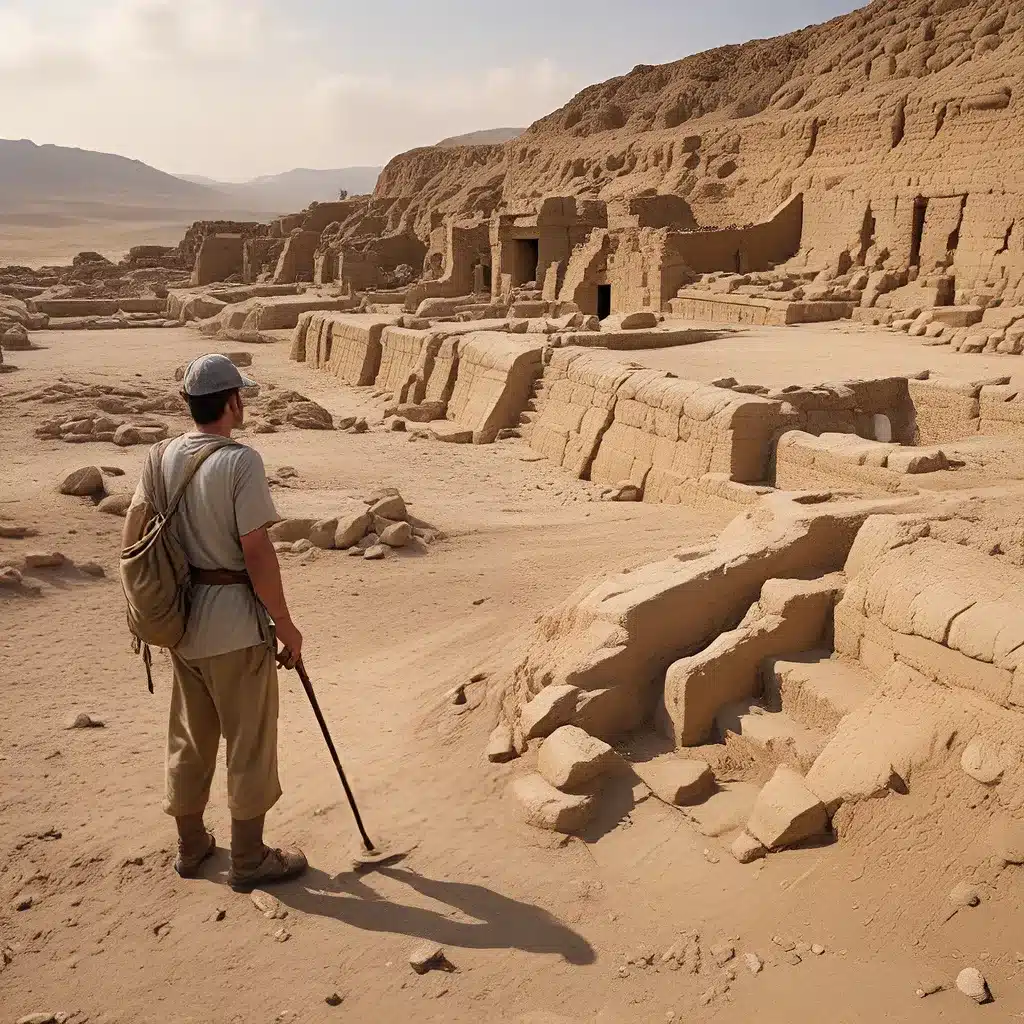
In the vast expanse of human history, ancient civilizations have risen and fallen, leaving behind a trail of captivating mysteries and untold stories. From the Achaemenid Empire of Persia to the Zoroastrian faith that shaped the ancient world, the archaeological odyssey we embark on today promises to uncover the secrets of vanished empires and their enduring legacies.
Uncovering the Mysteries of the Achaemenid Empire
The Achaemenid Empire, founded by Cyrus the Great in the 6th century BC, stood as one of the most powerful and influential civilizations in the ancient world. Stretching from the Mediterranean to the Indus Valley, this vast Persian empire was known for its remarkable achievements in governance, architecture, and cultural exchange.
Recent archaeological excavations have shed new light on the inner workings of the Achaemenid Empire, revealing a sophisticated administrative system and a diverse population that thrived under its rule. The discovery of administrative records, royal inscriptions, and architectural remains has provided invaluable insights into the empire’s bureaucratic structure, trade networks, and the daily lives of its subjects.
One of the most significant finds from the Achaemenid period is the Behistun Inscription, a trilingual text carved into a limestone cliff in modern-day Iran. This remarkable document, which records the achievements of Darius the Great, has proved crucial in deciphering the Achaemenid cuneiform script and understanding the empire’s complex history.
Through the analysis of these archaeological treasures, scholars have been able to piece together a more comprehensive understanding of the Achaemenid Empire’s cultural and political legacy. The empire’s impact on the development of early monotheistic faiths, such as Zoroastrianism, has also been a subject of intense scholarly interest, as we shall explore in the following section.
The Enduring Influence of Zoroastrianism
Zoroastrianism, founded by the ancient Iranian prophet Zarathustra, is widely regarded as one of the world’s oldest monotheistic religions. Emerging in the first millennium BC, this faith’s influence can be traced across the ancient world, from the courts of the Achaemenid rulers to the philosophical traditions of ancient Greece.
Scholars have long debated the precise timeline of Zarathustra’s life, with estimates ranging from 1500 to 1000 BC. However, what is clear is the profound impact of his teachings on the development of subsequent religious and philosophical traditions, including Judaism, Christianity, and Islam.
The Zoroastrian concept of a single, all-powerful deity, known as Ahura Mazda, is believed to have laid the groundwork for the monotheistic faiths that would later emerge in the Middle East. Additionally, the Zoroastrian emphasis on the cosmic struggle between good and evil, represented by Spenta Mainyu and Ahriman, respectively, found its way into the belief systems of many ancient cultures.
The influence of Zoroastrianism can be seen in the architectural and artistic traditions of the ancient world as well. Zoroastrian fire temples, where the sacred flame is kept burning perpetually, have left an indelible mark on the religious landscape of the Middle East and Central Asia. Furthermore, the Zoroastrian motif of light versus darkness has been a recurring theme in various forms of art and literature, from Raphael’s “The School of Athens” to the iconic score of Richard Strauss’ “Thus Spoke Zarathustra.”
As the ancient faith of Zoroastrianism has waned in modern times, its cultural legacy continues to resonate, shaping the worldviews and artistic expressions of diverse civilizations. The study of this profound and influential religion provides a unique window into the interconnected histories of the ancient world, illuminating the complex web of cultural exchange and ideological evolution that has shaped our understanding of the past.
The Enduring Fascination with Ancient Empires
The captivating stories of ancient civilizations continue to capture the imagination of scholars, enthusiasts, and the general public alike. From the towering achievements of the Achaemenid Empire to the profound influence of Zoroastrianism, the archaeological odyssey into the past offers a glimpse into the rich tapestry of human history.
As new discoveries and insights emerge, the study of these vanished empires becomes increasingly vital, shedding light on the shared experiences, cultural exchanges, and enduring legacies that have shaped the modern world. By tracing the footsteps of our ancestors, we can better understand the forces that have guided the course of human civilization, and perhaps even glean valuable lessons for navigating the challenges of the present and future.
At The Lost Kingdoms, we are committed to exploring the mysteries of the past, uncovering the hidden stories of ancient empires, and sharing these captivating narratives with a global audience. Through our ongoing research, discoveries, and engaging content, we invite you to embark on an extraordinary archaeological odyssey, where the past and present intertwine, and the possibilities of the future are illuminated by the wisdom of bygone eras.


